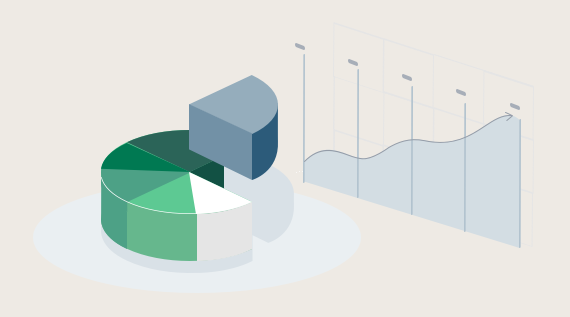Personal Wealth Management / Expert Commentary
Fisher Investments Reviews if the Yield Curve is a Broken Indicator
Fisher Investments’ founder, Executive Chairman and Co-Chief Investment Officer, Ken Fisher, discusses whether the yield curve—the spread between short- and long-term government interest rates, and a proxy for bank lending—continues to work as a recession indicator.
Transcript
Ken Fisher:
So decades ago, in the 80s, I wrote at some length about what a good recession forecaster the so-called yield curve was/is— the yield curve being the spread between short-term government interest rates and long-term government interest rates. And that flashed recession signals several years ago in 2022 for a recession that we never had.
And so people still ask, as it's still an inverted yield curve today and as the bank keeps short-term interest rates above long-term interest rates, people ask has this thing broken? And the answer is: Breaking is an interesting way to think about it. It always was only a reflection of future recession problems because it reflected, fairly correctly, the cost versus revenue structure of banks for future lending. Said differently, banks are in the core business of taking in short-term deposits and using them to finance longer-term loans.
Therefore, when the spread between long rates is high over short rates— short rates are the cost, long rates are the revenue, they get more profit from future lending and they lend more aggressively. And that helps support the economy when the inversion happens and the central bank pushes short rates above long rates. That makes it very hard to make a comparable quality loan relative to your cost base. And banks pull in their horns, don't lend, and that tends to cause recession because so many entities in our economy are dependent on ongoing lending for financing, inventory and ongoing projects for development. They need bank loans. So that's why it always worked well.
Broken is an interesting phrase, but the Covid experience changed both the psychology of the depositor as well as the mentality of saving, in that suddenly people hoarded cash in all kinds of ways and saved because of their fear of problems ahead. And even as Covid became not so much of a problem down the road as we got past the worst of that. Having been scared heavily by Covid, people kept the cash base that they had.
Said otherwise, banks were flush with a low-cost deposit base. They remain, today, flush with a low-cost deposit base. The rising short-term interest rates that the central bank— The Federal Reserve, and outside of America in other major central banks—implemented in 2022 and into 2023, did not actually alter that much. It impacted the government's cost of borrowing short-term funds, but it didn't change the deposit base that the banks lend on. It only increased that cost by less than a third of 1%. Maybe in some banks a little more than that.
But overall, and therefore, as we look at that, banks still remain perfectly profitable as they lend. When I say perfectly profitable, I mean nicely profitable as they lend. That function that always worked before, where the shift between short-term and long-term government interest rates reflected the cost spreads of bank costs for deposits versus lending rates, it doesn't hold right now. Will it hold again in the future?
Maybe. But it's really the important, fundamental, underlying feature that always mattered, not the spread between government rates, short and long. They were just a symbol of the other, and they aren't now a symbol of the other. So if you want to call that broken, yeah, I guess it's broken. But I don't really know that that's breaking it, it's just different. The fundamentals haven't changed.
Thank you very much for listening to me.
Voice of Ken Fisher:
Hi, this is Ken Fisher. Subscribe to the Fisher Investments' YouTube channel if you like what you've seen.
Click the bell to be notified as soon as we publish new videos.

See our Business 401(k) Insights
Resources and articles to help your business with retirement plan support, optimization and administration.

Contact Us
One of our 401(k) business specialists would love to talk to you about your company's retirement plan needs.




